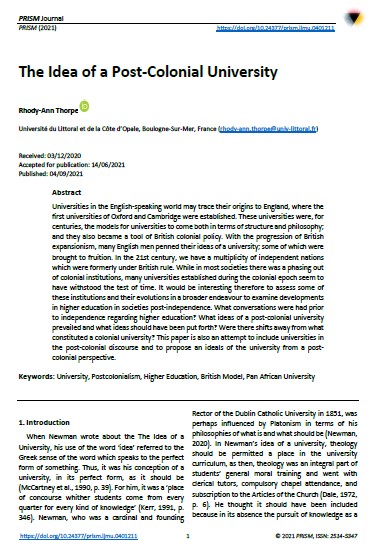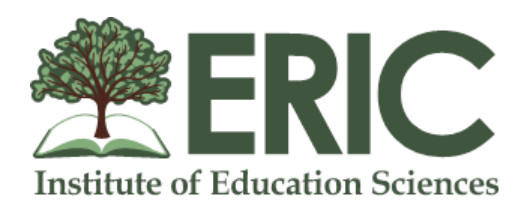The Idea of a Post Colonial University
DOI:
https://doi.org/10.24377/prism.ljmu.0401211Keywords:
University, Postcolonialism, Higher Education, British Model, Pan-African UniversityAbstract
Universities in the English-speaking world may trace their origins to England, where the first universities of Oxford and Cambridge were established. These universities were, for centuries, the models for universities to come both in terms of structure and philosophy; and they also became a tool of British colonial policy. With the progression of British expansionism, many English men penned their ideas of a university; some of which were brought to fruition. In the 21st century, we have a multiplicity of independent nations which were formerly under British rule. While in most societies there was a phasing out of colonial institutions, many universities established during the colonial epoch seem to have withstood the test of time. It would be interesting therefore to assess some of these institutions and their evolutions in a broader endeavour to examine developments in higher education in societies post-independence. What conversations were had prior to independence regarding higher education? What ideas of a post-colonial university prevailed and what ideas should have been put forth? Were there shifts away from what constituted a colonial university? This paper is also an attempt to include universities in the post-colonial discourse and to propose an ideals of the university from a post-colonial perspective.
Downloads

Downloads
Published
Issue
Section
License
Authors retain copyright and grant the journal the right of first publication with the work.
The version of the article published as part of this issue is licensed under a Creative Commons Attribution-NonCommercial-NoDerivatives 4.0 International Licence and allows others to read, download, copy, distribute, print, search, link to the full text of the first version of this article, or to use it for any other lawful purpose in accordance with the license. The author maintains copyright for the article published in this journal.
This journal provides immediate open access to its content and has no submission or publication fees.



